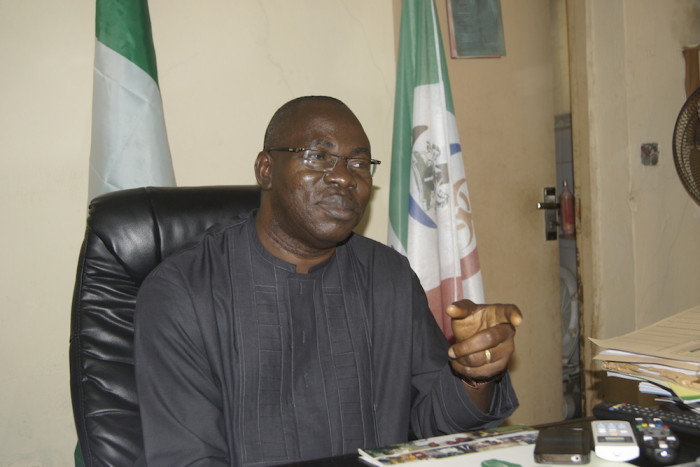In his welcome remarks at the Lawyers Roundtable on Biosafety held at the Apo Apartments, Abuja on Tuesday, April 25 2017, Nnimmo Bassey, Director of the Health of Mother Earth Foundation (HOMEF), says that, in the light of the seeming defective NBMA Act, government cannot afford to gamble with the citizen’s biosafety and biosecurity

Dead people cannot speak against judicial or other decisions. Likewise, dead people cannot be compensated if their demise was triggered by some poison they unknowingly ingested.
These and several other considerations are markers on the pathways of justice. They underscore why we cannot shut our eyes to the laws that leave yawning gaps for transgressions. They illustrate the reasons why we cannot and should not stomach permissive laws that endanger our food and agricultural systems.
The Nigerian Biosafety Management Agency (NBMA) Act came into force on 18th April 2015 after the then President Goodluck Jonathan put his signature on it. On Thursday 28th April 2016, NABMA wrote a letter to HOMEF and ERA/FoEN (Ref: NBMA/ODG/050/1/68), acknowledging receipt of our copious objections to the applications from Monsanto and the National Biotechnology Development Agency (NABDA) to conduct confined field trials of two maize events and of another application from Monsanto for commercial release and placement in the environment of GMO cotton. In the letter of acknowledgement of receipt of our objections NBMA said they have “noted” our objections and pledged to “review the application holistically and take the best decision in the interest of Nigeria, to avoid risks to human health, biodiversity conservation and sustainable use of biodiversity. The socio-economic impacts would also be well considered before taking final decision on the application.” The agency then thanked us for our views.
Two days later, on Sunday, 1st May 2016, NBMA issued permits to the two applications made by Monsanto and its government agency partner. It is clear to us that our objections were not considered.
Two things. We have an agency that approved applications for introduction of GMOs into Nigeria in less than a year of its being constituted. The speed with which the new agency approved Monsanto’s application breaks all records of similar processes anywhere in the world.
The speed of approval raises questions over the readiness of the agency to tackle the delicate and serious issue of modern agricultural biotechnology – a contentious technology that has foisted tales of woes on citizens as well as farmers in other climes, a technology that opposes the basic tenets of our agricultural and food systems.
Secondly, the speed shows a disdain for public consultation and participation in the serious approval processes. These are some of the issues that we have invited you, legal luminaries to examine in this roundtable.
As we discuss the issues surrounding biosafety, we hope you will focus particularly on the NBMA Act 2015 and see if the Agency as constituted is wired to serve the best biosafety interests of Nigeria or if it should be dramatically reviewed or even repealed. In particular, we hope that you, as legal experts, consider if there are issues of conflict of interest in a setting such as that of NBMA where board members are promoters of the risky technology and are also applicants that have benefited from the very first application to have come before the Agency.
We wish to be advised if such a construct does not obstruct avenues for justice, fairness, probity and equity in our collective struggle for a food regime that ensures that we are not turned into guinea pigs by those pushing to colonise our food systems and expose us to avoidable risks.
As we engage in our dialogue, let us all keep in mind that this matter has implications that is intergenerational and lapses have consequences for Nigerians yet unborn. Laws are not cast in concrete. The right to safe and nutritious food is a universal right. GMOs challenge that right with its creation of novel organisms, dependence on toxic chemicals and abridgement of the rights of farmers to preserve and share seeds and to stay free from contamination by genetically engineered seeds.
A defective law cannot provide justice. It cannot protect our biodiversity, ensure biosecurity or secure our very life. We cannot gamble with our biosafety and biosecurity.
